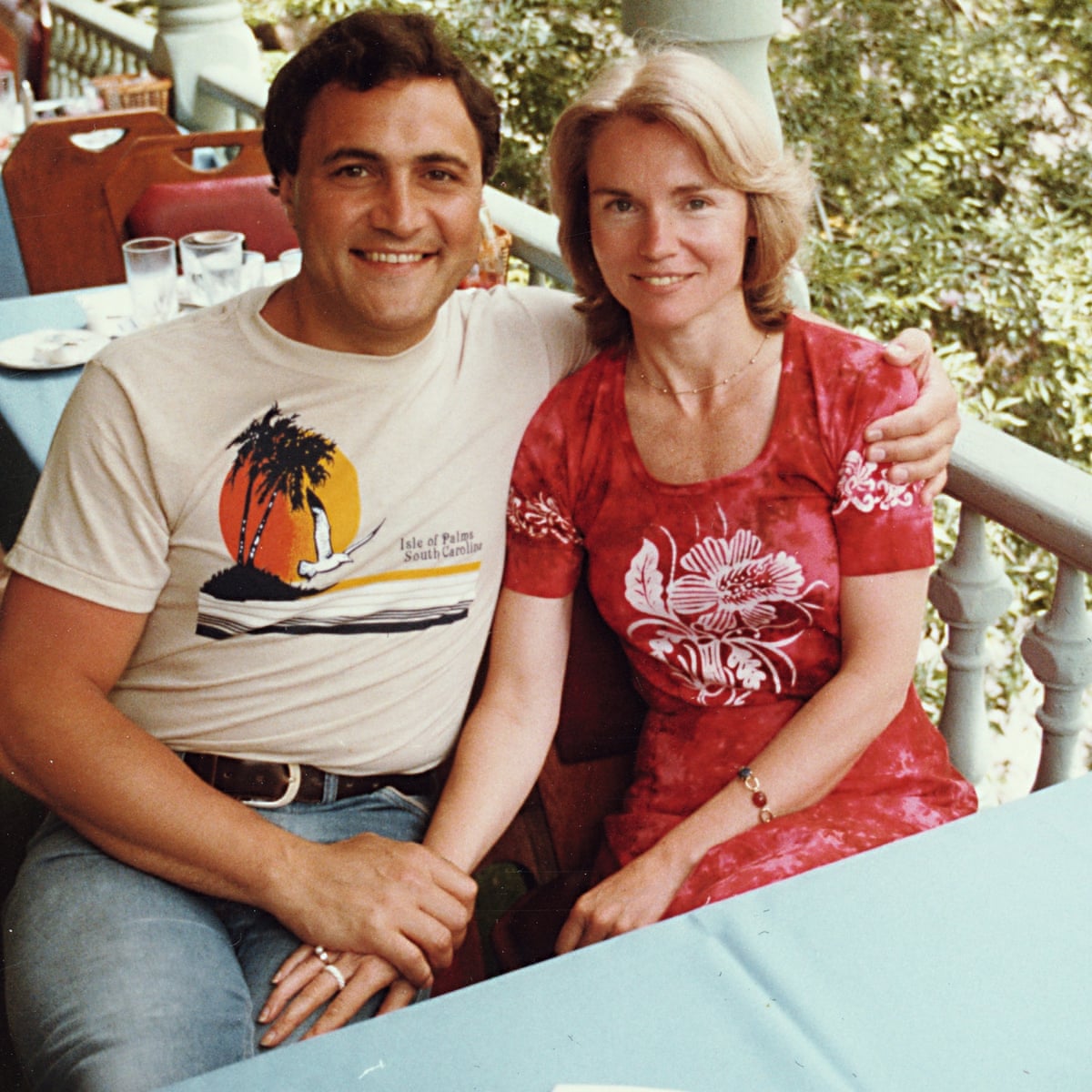David Suchet, the famous actor known for his role as Hercule Poirot, has faced a personal challenge. His wife, Sheila Ferris, is battling dementia.
The news of Sheila’s condition has touched many hearts. David Suchet has always been open about his life, and this is no exception. Dementia affects millions worldwide, causing memory loss and confusion. It is tough on families and caregivers. David’s journey with his wife’s illness sheds light on the struggles many face.
His story helps raise awareness and offers support to those in similar situations. In this blog, we will explore David Suchet’s experiences and the impact of dementia on loved ones. Stay with us as we delve into this touching narrative.
Early Signs
The early signs of dementia can be subtle and easily overlooked. When discussing the challenges faced by David Suchet’s wife, it is crucial to recognize these initial symptoms. Awareness can lead to timely medical intervention and support.
Initial Symptoms
One of the first signs is memory loss. She may forget recent events or conversations. Another sign is difficulty in finding the right words. Conversations can become challenging. She might also struggle with daily tasks. For example, cooking or managing finances. Sometimes, she may get disoriented. Even in familiar places. Mood swings can also be an early sign. She might feel anxious or irritable without reason.
Seeking Medical Advice
If you notice these symptoms, it’s important to seek medical advice. Early diagnosis can help manage the condition better. Doctors can conduct tests to confirm dementia. They may also suggest treatment options. Support groups can provide emotional help. Family members should stay informed. They play a key role in caregiving.

Credit: www.theguardian.com
Impact On Family
David Suchet, beloved for his role as Hercule Poirot, has faced a deeply personal challenge. His wife, Sheila Ferris, has been diagnosed with dementia. This condition affects not just the patient but also the entire family. The impact on David and his family has been profound, touching every aspect of their lives.
Emotional Struggles
Dealing with a loved one’s dementia brings many emotional struggles. David Suchet and his family experience sadness and frustration. They watch Sheila’s condition worsen over time. The sense of helplessness can be overwhelming. Each day brings new challenges, testing their emotional resilience.
The family must cope with changes in Sheila’s personality and memory. These changes can lead to feelings of grief and loss. It’s like losing a part of a loved one piece by piece. Managing these emotions is a constant effort. It requires patience and understanding from everyone involved.
Support System
A strong support system is crucial for families dealing with dementia. David Suchet has found strength in his close-knit family. They provide emotional and practical support. Friends and extended family also play an important role. They help by offering companionship and assistance.
Professional caregivers are another vital part of the support system. They bring expertise and relief to the family. Support groups provide a safe space for sharing experiences. They offer comfort and advice from others in similar situations. This network of support helps ease the burden on David and his family.
David Suchet’s Role
David Suchet, the famous actor known for his role as Hercule Poirot, has taken on a new role in his personal life. This time, it’s not on screen, but at home. David Suchet’s wife, Sheila Ferris, has been diagnosed with dementia. This has turned David into a caregiver, a role filled with challenges and emotional ups and downs.
Caregiving Challenges
Being a caregiver for a loved one with dementia is demanding. David Suchet faces many caregiving challenges. He must manage daily tasks and ensure Sheila’s safety and well-being. Dementia can cause confusion and memory loss. This means David needs to be patient and understanding every day.
One of the biggest challenges is maintaining a routine. People with dementia often feel better with a regular schedule. David has to balance this with his work commitments. This is not easy. He often has to prioritize Sheila’s needs over his own.
Another challenge is communication. Dementia affects how Sheila interacts with others. David must find new ways to connect with her. Simple, clear sentences work best. He has learned to listen more and speak less.
Emotional Resilience
David Suchet’s role as a caregiver also tests his emotional resilience. Watching a loved one struggle with dementia is heart-wrenching. There are good days and bad days. On bad days, Sheila may not recognize him. This can be very painful.
To stay strong, David relies on a few strategies. First, he takes care of his own health. He knows he can’t help Sheila if he is not well himself. Second, he seeks support. Talking to friends and family helps. Sometimes, he even consults professionals for advice.
David also finds comfort in small victories. A smile from Sheila or a moment of clarity is precious. These moments keep him going. He celebrates these little wins to build his emotional strength.
David Suchet’s role as a caregiver is challenging, but he faces it with courage and love. His journey is a testament to the strength of human spirit and the power of love.

Credit: www.express.co.uk
Navigating Daily Life
David Suchet and his wife have been navigating the challenges of dementia together. This journey involves significant adjustments to their daily routine and strategies for handling difficult moments. Understanding these adjustments can help others facing similar situations.
Routine Adjustments
Daily routines often need to be adjusted to accommodate the needs of a loved one with dementia. Establishing a consistent schedule can provide a sense of stability and comfort. This includes regular times for meals, medication, and activities.
Key adjustments include:
- Creating a calm and structured environment.
- Using visual aids to remind about daily tasks.
- Maintaining a clutter-free space to reduce confusion.
These routine adjustments help in making daily life more predictable and manageable. It reduces stress for both the caregiver and the individual with dementia.
Handling Difficult Moments
Handling difficult moments with dementia requires patience and empathy. There will be times of confusion, agitation, or distress. Having strategies in place can help manage these moments effectively.
Consider the following strategies:
- Stay calm: Your calmness can help soothe your loved one.
- Use gentle reminders to redirect their focus.
- Engage in calming activities such as listening to music.
These strategies can help in diffusing tense situations and maintaining a peaceful environment. Remember, every day is different, and what works one day might not work the next.
David Suchet’s experience highlights the importance of patience and adaptability. By making routine adjustments and handling difficult moments with care, daily life with dementia can become more manageable.
Medical And Therapeutic Support
David Suchet’s wife has been facing the challenges of dementia. This journey requires a comprehensive approach to care. Medical and therapeutic support play crucial roles in managing dementia symptoms and improving quality of life.
Treatment Options
Various treatment options are available to help manage dementia. These treatments can slow down the progression of the disease. They also help improve the patient’s quality of life.
- Medications: Doctors may prescribe medications to manage cognitive symptoms. These include cholinesterase inhibitors and memantine.
- Lifestyle Changes: Healthy eating, regular exercise, and mental stimulation can help. They can slow down the progression of dementia.
- Medical Interventions: Regular check-ups and monitoring by healthcare professionals are essential. This helps in early detection and management of symptoms.
Therapy And Counseling
Therapy and counseling are vital for dementia patients and their families. They provide emotional support and help in coping with the disease.
- Cognitive Behavioral Therapy (CBT): CBT helps patients manage their thoughts and behaviors. It can be effective in reducing anxiety and depression related to dementia.
- Occupational Therapy: This therapy helps patients maintain their daily living skills. It focuses on improving their ability to perform everyday tasks.
- Family Counseling: Dementia affects the entire family. Counseling sessions can provide support and strategies for family members. They help in dealing with the emotional stress.
David Suchet and his family have been seeking these medical and therapeutic supports. This ensures the best possible care for his wife. Understanding and utilizing these options can make a significant difference in managing dementia.

Credit: www.theguardian.com
Community And Resources
Dealing with a loved one’s dementia can be overwhelming. David Suchet, famous for his portrayal of Hercule Poirot, has been open about his wife’s dementia. Finding community and resources is essential. It helps in managing the emotional and physical demands. Here are some ways to find support and educate yourself.
Support Groups
Support groups provide a sense of community. They connect you with others going through similar experiences. Sharing stories and advice can be comforting. You can find these groups online or in your local area. Many organizations offer both virtual and in-person meetings. This flexibility ensures everyone can access support. Joining a group can reduce feelings of isolation. It helps you feel understood and less alone.
Educational Resources
Education is key in managing dementia. There are many resources available to help. Books, online courses, and videos can provide valuable information. These resources cover various topics. From understanding dementia to practical caregiving tips. Websites of organizations like Alzheimer’s Association offer extensive information. They provide guides, research articles, and toolkits. Staying informed helps you provide better care. It also prepares you for future challenges.
Finding Hope
David Suchet’s wife, Sheila Ferris, has been battling dementia. This illness can be tough, but they find ways to stay positive. Finding hope is key to their journey. They focus on the good moments and look forward to the future.
Moments Of Joy
Even with dementia, there are still moments of joy. David and Sheila cherish small victories. They enjoy simple activities together. Watching a favorite movie, sharing a meal, or listening to music brings them happiness.
They often spend time with family and friends. This support system is vital. Social interactions help keep spirits high. Laughter and love fill their home. These moments strengthen their bond.
Future Outlook
David remains hopeful for the future. He believes in the power of love and care. He stays informed about dementia research. New treatments and therapies offer hope.
They plan for the future together. They discuss their wishes and desires. This planning provides peace of mind. It ensures Sheila receives the best care possible.
David supports dementia awareness. He shares their story to help others. He believes awareness can lead to better support and understanding. Their journey continues with hope and love.
Frequently Asked Questions
Who Is David Suchet’s Wife?
David Suchet’s wife is Sheila Ferris. They have been married since 1976.
Does David Suchet’s Wife Have Dementia?
Yes, Sheila Ferris, David Suchet’s wife, has been diagnosed with dementia.
How Is David Suchet Coping With His Wife’s Dementia?
David Suchet has expressed his deep love and support for his wife. He remains devoted to her care.
What Has David Suchet Said About His Wife’s Condition?
David Suchet has spoken publicly about the challenges and emotional impact of his wife’s dementia diagnosis.
Conclusion
David Suchet’s story about his wife’s dementia is deeply moving. It reminds us to cherish our loved ones. Dementia affects many families worldwide. Awareness and support are crucial. David Suchet’s openness helps reduce stigma. It’s important to seek help early.
Stay informed and show compassion. Every small act of kindness counts. Let’s support those facing dementia.






